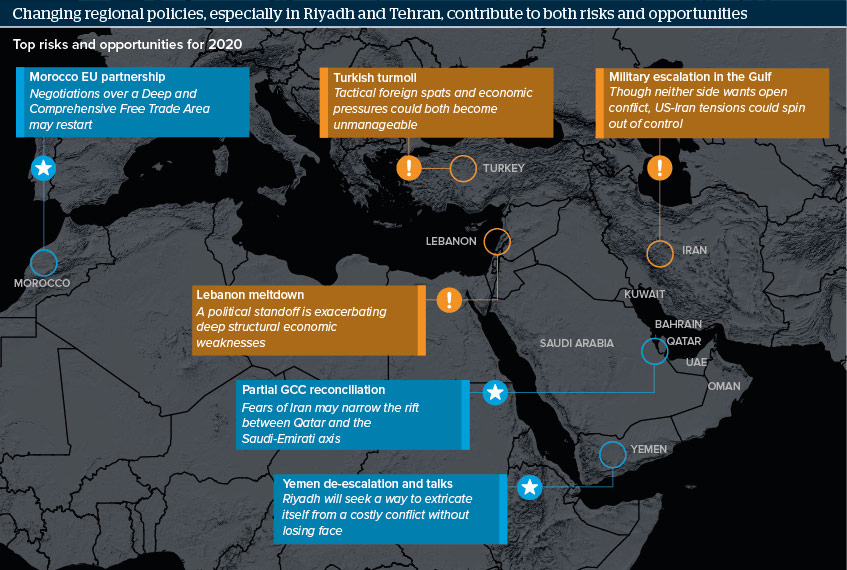Risks and opportunities 2020: Middle East North Africa
The region is preoccupied by Gulf divisions, new protest movements and deep economic uncertainties
Source: Oxford Analytica
Outlook
Under rising pressure from sanctions and protests, Tehran blames Washington and its regional allies. With the nuclear agreement eroding and oil exports blocked, Iran’s security establishment is ready to pick fights, which could spiral out of control -- in Iraq, Yemen or the wider Gulf.
Its efforts to maintain regional influence will pit it against popular protests. In Lebanon, this dynamic could extend the political crisis that is undermining Beirut’s precarious economy, with a risk of debt default and food shortages.
US ally Saudi Arabia, meanwhile, could seek to counter the Iranian threat by resolving other conflicts, notably the war with Tehran-linked Huthis in Yemen and the rift with Qatar.
Impacts
- As G20 head, Riyadh will seek to extricate itself from regional conflicts, though deep resentments have developed that will limit progress.
- Rabat may leverage its indispensability as a migration and counterterrorism partner to press Brussels to to advance free trade discussions.
- Turkish growth and investment could suffer from new spats with foreign powers, as well as high unemployment and debt levels.
